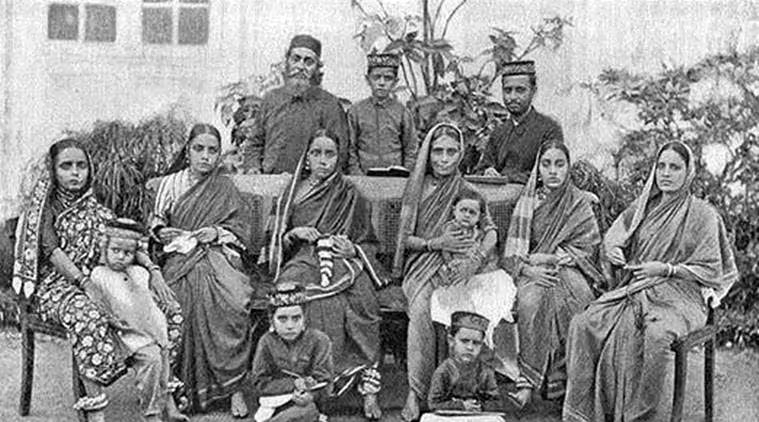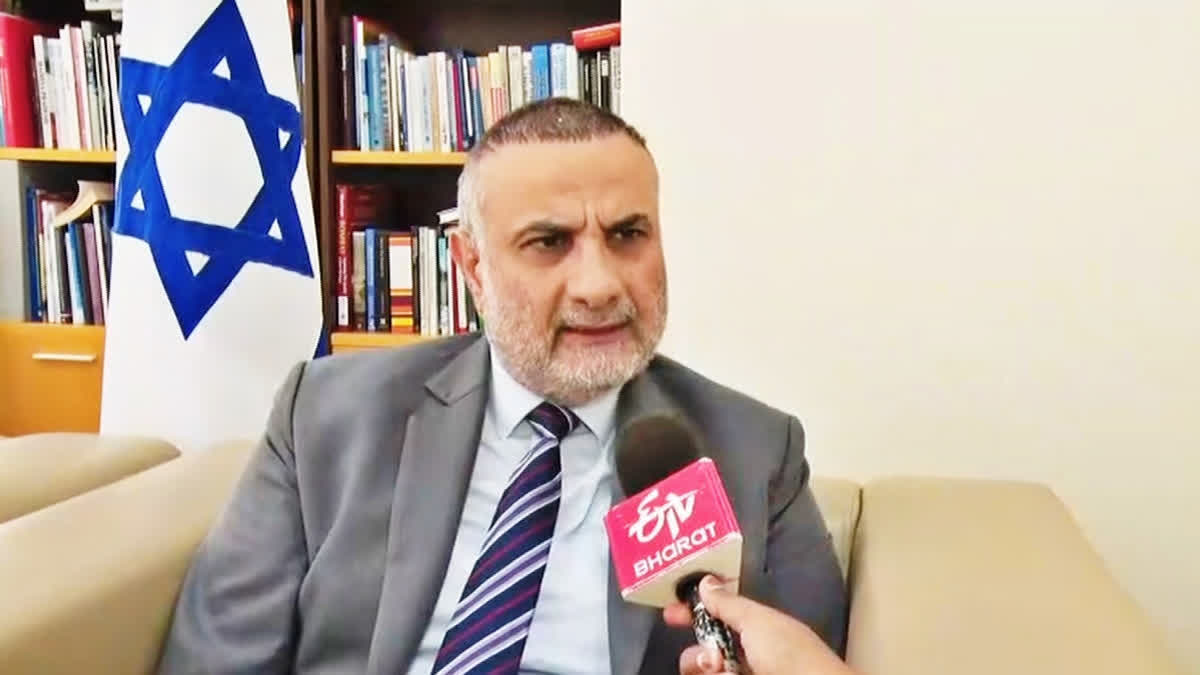Kobbi Shoshani emphasized that Jews Lived in India for Over 2000 Years without facing significant discrimination or persecution. This assertion highlights the longstanding tradition of tolerance and inclusivity that has characterized Indian society throughout history.
In a powerful statement on Holocaust Remembrance Day, Kobbi Shoshani, the Consul General of Israel to the Midwest, reflected on the unique and peaceful history of the Jewish community in India.
Shoshani made these remarks during a ceremony at the synagogue in Mumbai, a city that has been home to Jewish communities for centuries. His comments come at a time when global discussions around religious tolerance, minority rights, and the preservation of cultural heritage are more pertinent than ever.
The statement was not just a historical reflection but also a timely reminder of the peaceful coexistence between Jews and Indian society. Shoshani’s acknowledgment is a tribute to the inclusive nature of India and its diverse social fabric, where people of different religions, ethnicities, and cultures have thrived together.
A History of Peaceful Coexistence
While Jews have faced persecution and hardship in many parts of the world, India has offered a different narrative. The country has long been recognized for its religious pluralism, and Jews have been part of this rich mosaic for over two millennia.
According to Shoshani, the Indian experience of Jews has been marked by acceptance and respect, as they were allowed to practice their faith without fear of exclusion or violence.
This peaceful coexistence is often attributed to India’s historical values of tolerance and respect for diverse cultures and religions. In his speech, Shoshani pointed out that the Jewish community in India has enjoyed freedom and security, without the kind of challenges faced by Jews in Europe, the Middle East, and other regions.
Read : Jews in Amsterdam Brutally Attacked by Mob: Watch
The Jewish communities in India, including the Cochin Jews, Bene Israel, and Baghdadi Jews, have lived peacefully alongside other religious and ethnic groups, contributing to the country’s rich cultural heritage.
Read : Ukrainians Treated Better Than Other Refugees: Council of Europe
Unlike in many other nations where Jews were marginalized, expelled, or persecuted, India provided a safe haven for Jewish people, enabling them to thrive. Kobbi Shoshani’s comments underscore that India’s model of multiculturalism allowed Jewish people to live without fear of discrimination.
The Indian Context and Its Impact Today
Shoshani’s statement also comes at a time when India’s role in fostering global religious tolerance is under the spotlight. In his remarks, the Consul General emphasized that India’s unique social dynamics allowed Jews to be integrated into society while maintaining their distinct cultural identity.
Today, while the Jewish population in India is small, the community’s legacy is still visible in the country’s cultural landmarks, institutions, and history.
The enduring legacy of Jewish communities in India has made a significant mark on the social, cultural, and even political landscape of the country. Shoshani’s speech reflected on the contributions of Jews to the arts, business, and education in India, pointing out that the Jewish community was able to thrive in an environment that valued cultural diversity.

He noted that the Jews in India were never forced to assimilate in a way that erased their identity. Instead, they were allowed to preserve their customs, religious practices, and traditions, living as an integral part of Indian society.
The continued existence of synagogues, Jewish schools, and cemeteries in cities like Mumbai, Pune, and Kerala are testament to this enduring legacy.
Shoshani also made it clear that the Jewish community’s peaceful coexistence in India serves as an example for the world. At a time when religious intolerance and discrimination are rising in various parts of the globe, India’s example of peaceful coexistence offers a beacon of hope.
Shoshani’s words reflected a deep sense of gratitude and recognition for India’s role in offering Jews a home free of fear, which has stood in stark contrast to their experiences in other regions.
The Symbolic Importance of Holocaust Remembrance Day
The Holocaust Remembrance Day ceremony was an important occasion for Shoshani to highlight these themes, especially since it is a time to reflect on the atrocities committed during World War II. The Holocaust, a period of mass persecution and genocide, represents one of the darkest chapters in Jewish history, where millions of Jews were systematically murdered.
In this context, Shoshani’s remarks were not just a celebration of India’s historical treatment of Jews but also a call to remember the importance of safeguarding religious freedoms and minority rights.
Holocaust Remembrance Day serves as a global reminder of the importance of combating hatred, intolerance, and bigotry. It encourages societies to reflect on the need for peaceful coexistence and to honor the memory of those who lost their lives during one of history’s worst atrocities.
In this light, Shoshani’s statement on India’s history with Jews is timely and resonates with the broader goal of preserving cultural and religious tolerance across the world.
Reflections on a Shared Future
While Shoshani’s speech highlighted India’s historical treatment of Jews, it also serves as a reminder of the importance of continuing this legacy. As India continues to evolve, the role of its minority communities, including Jews, remains vital to the country’s fabric. The statement by Shoshani reaffirms that India’s commitment to religious and cultural pluralism remains steadfast.

The continued presence of Jewish heritage in India, despite the small number of Jews today, stands as a tribute to this longstanding relationship.
Shoshani’s acknowledgment during Holocaust Remembrance Day serves not only as a reflection on past achievements but also as an appeal to future generations. It is a call for the continued preservation of India’s tradition of acceptance and inclusivity, ensuring that all religious and cultural communities continue to thrive in harmony.
India’s treatment of Jews, particularly in contrast to the experiences of Jews in other parts of the world, offers a valuable lesson in the power of religious tolerance. Shoshani’s statement reminds us of the need to protect religious freedom and the rights of minorities, a principle that remains as crucial today as it was 2,000 years ago when the first Jews arrived in India.
In conclusion, the statement by Kobbi Shoshani on Holocaust Remembrance Day sheds light on the exceptional history of Jews in India, living peacefully and without fear of discrimination for over two millennia.
His words remind us that India has long been a sanctuary for people of different faiths, a place where religious tolerance is not just a concept but a lived reality. In a world that continues to face challenges related to religious and cultural intolerance, India’s example offers hope and inspiration for a more harmonious future.

